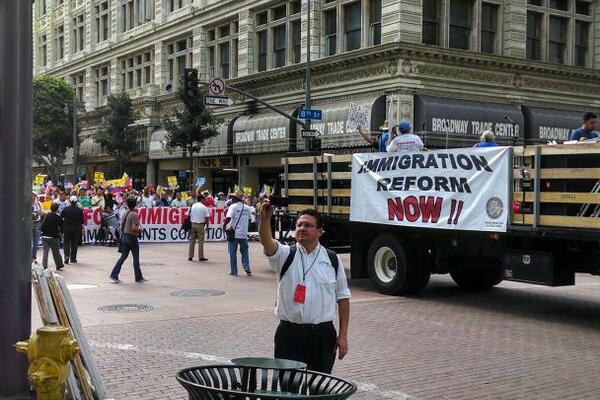I don’t know what came over me. Was it what Noel Castellanos (CEO of CCDA) had said? What Jim Wallis (President of Sojourners) had said? Perhaps. I couldn’t keep the tears from coming. Walking up Broadway Street in Los Angeles in the middle of a Saturday afternoon as a crowd of people blew horns, held signs, and chanted, “Immigration reform now,” I wept. It was because of Ivone. I was even wearing my Faith is Greater Than Fear shirt but lurking along the sidewalk, not intending to get involved. But it's too late for that. I love Ivone like a sister, I’m already knee deep in it.
Jim, Noel, and Jenny Yang (World Relief) had just been speaking on a panel at the Justice Conference about immigration reform. Jim said that we had to pass comprehensive immigration reform now, before the summer recess. And I knew in my heart that he was right. Because if we don’t, then Ivone will continue to lie in limbo along with 11 million other aspiring Americans, perhaps being deported in a couple of years. We will both continue to live in uncertainty and fear.
Read the Full Article

